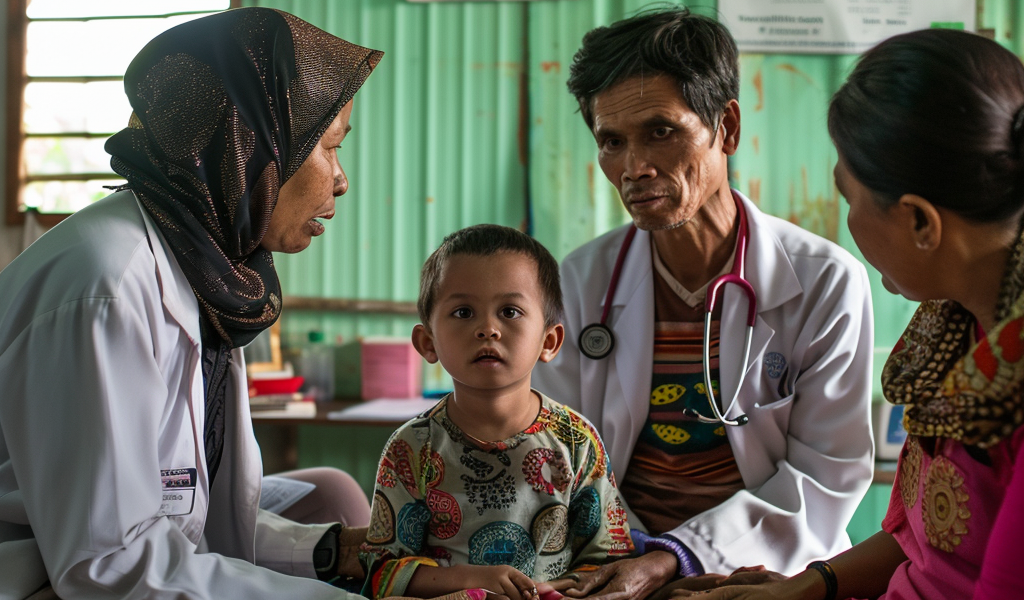The battle against tuberculosis (TB) continues to face significant challenges, particularly in identifying and treating all cases of this infectious disease. According to the latest WHO Global TB Report 2024, Indonesia alone reported an estimated 1.1 million new TB cases in 2023. However, health services reached only about 804,800 of these cases, leaving a substantial number unaccounted for. This shortfall presents a grave concern, as untreated individuals can perpetuate the spread of TB within communities.
Dr. Erlina Burhan, a prominent expert in TB and lung diseases, emphasizes the importance of identifying all TB cases to break the cycle of transmission. “If we do not find these missing cases and put them on treatment, they will remain a source of infection to the rest of the community,” she stated. The ongoing transmission of TB underscores the critical need for comprehensive care and support, which is often free in the public health sector.
Dr. Burhan advocates for a global initiative encapsulated in the hashtags #FindAllTB, #TreatAllTB, and #PreventAllTB, highlighting that neglecting any of these pillars will hinder efforts to eliminate TB. The call to action is clear: health systems must prioritize a people-centered, rights-based, and gender-transformative approach to TB prevention and treatment.
As a leading lung infection specialist at Persahabatan Hospital in Jakarta and a professor at the University of Indonesia, Dr. Burhan is deeply involved in the global fight against TB. She serves on the Board of Directors of the International Union Against Tuberculosis and Lung Disease and is a member of the WHO TB Guideline Development Board. Her insights were shared during the recent Union World Lung Health Conference held in Bali, which is recognized as the largest global gathering focused on TB and lung diseases.
The WHO’s report highlights that 30 high TB burden countries collectively accounted for 87% of the global TB burden in 2023. Among these, eight countries were particularly notable, with India leading at 26%, followed by Indonesia at 10%, China at 6.8%, the Philippines at 6.8%, Pakistan at 6.3%, Nigeria at 4.6%, Bangladesh at 3.5%, and the Democratic Republic of Congo at 3.1%.
Despite international commitments to end TB by 2030, there remains a stark contradiction in addressing the underlying risk factors that exacerbate the spread of the disease. Dr. Burhan points out that the socio-economic challenges faced by many individuals, including malnutrition, have not been adequately addressed. “TB is a transmissible disease, and unless all infection prevention strategies are implemented, we will continue to see high rates of transmission,” she warns.
In addition to improving detection and treatment rates, there is a pressing need for comprehensive strategies that tackle the social determinants of health. Addressing issues such as poverty, access to healthcare, and education can significantly reduce the susceptibility of populations to TB.
The urgency of the situation calls for a concerted effort from governments, health organizations, and communities to enhance TB surveillance and ensure that all individuals at risk are identified and treated. Without such measures, the goal of eradicating TB will remain elusive.
As the world continues to grapple with TB, the lessons learned from the ongoing fight against this disease can inform broader public health strategies. By fostering collaboration and commitment across all sectors, it may be possible to turn the tide against TB and protect the health of vulnerable populations.
Dr. Burhan’s insights serve as a reminder of the significant work that lies ahead in the quest to end TB. The global health community must remain vigilant and proactive in addressing the multifaceted challenges posed by this infectious disease.





